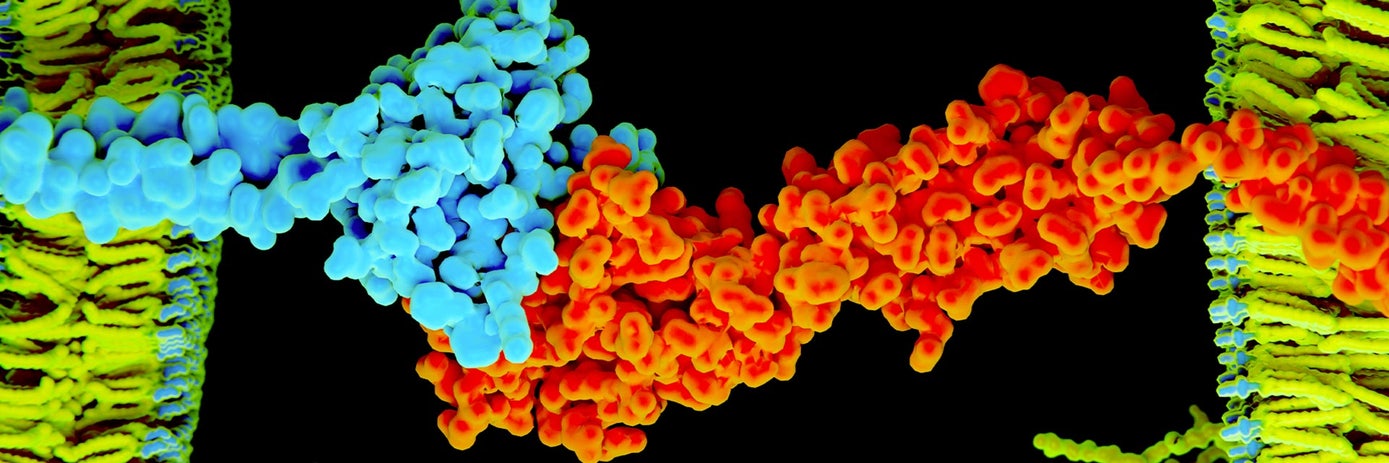Cytokines play pivotal roles in maintaining immune homeostasis and combating various diseases. As crucial regulators of the immune system, cytokines are attractive therapeutic candidates for the treatment of various cancers and immune-related disorders.
Despite their central role in immune modulation, regulatory approvals for cytokine-based therapies remain limited. To date, only three recombinant cytokines have been approved by the US FDA and the EMA for cancer treatment. These include recombinant interleukin 2 (IL-2) and two variants of recombinant interferon alpha 2 (IFN-α2a and IFN-α2b).
So, what is limiting their widespread clinical use?
The major challenges associated with the therapeutic use of cytokines is their pleiotropic nature and short serum half-life.
- Pleiotropic nature: Cytokines are able to influence different cell types, leading to varied or even opposing biological responses. This complexity can lead to unpredictable treatment outcomes and potentially harmful reactions in patients.
- Short serum half-life: Cytokines typically have a short half-life in the bloodstream, necessitating frequent administration or high doses. Elevated doses can exacerbate pleiotropic activities, increasing the risk of adverse reactions.
Addressing these challenges requires a multifaceted approach, including cytokine engineering to reduce toxicity and increase half-life, targeted delivery systems to localize cytokine action, and combination therapies to optimize therapeutic outcomes while minimizing adverse effects, which highlights why tools to advance research in this area are needed.
Cytokine detection with AlphaLISA
AlphaLISA™ assays are innovative tools for evaluating next-generation cytokines in cancer immunotherapy. These homogeneous immunoassays utilize bead-based technology to detect protein-protein interactions, identify cytokine activity modulators, and quantify secreted cytokines.
For instance, Gutierrez et al., utilized AlphaLISA technology to investigate the potency and pharmacodynamic properties of a novel IL-12 variant, DF6006, engineered to have a prolonged half-life via Fc fusion.1 IL-12 has great potential for cancer treatment due to its ability to stimulate both adaptive and innate anti-tumor immune responses. However, because of its short half-life, recombinant IL-12 requires frequent dosing, leading to high-amplitude IFNγ responses and dose-limiting toxicities in the clinic. For this study, the team’s fully human IL-12-Fc therapeutic drug candidate was designed to retain the high potency of native IL-12 while significantly expanding its therapeutic window.
The AlphaLISA assay provided a quantitative readout of IFNγ levels, a marker of IL-12 activity, allowing the team to compare DF6006’s potency with that of native recombinant human IL-12 (rhIL-12). In both human and cynomolgus monkey peripheral blood mononuclear cells (PBMCs), the researchers were able to confirm the ability of DF6002 to trigger robust IFNγ production comparable to rhIL-12, underscoring its therapeutic potential.
In another study, Nuruddeen Lewis’s group utilized AlphaLISA assays to compare the potency of exosome-delivered IL-12 (exoIL-12) with recombinant IL-12 in inducing IFNγ production from various immune cells.2 Their study aimed to assess whether localized delivery of IL-12 to the tumor microenvironment using exosomes could enhance the antitumor response.
Results of the assay showed comparable potency between exoIL-12 and rIL-12 across murine and cynomolgus monkey PBMCs, confirming that exosome-displayed IL-12 retains biological activity similar to the recombinant version of the cytokine without compromising specificity.
Together, these studies demonstrate the role of AlphaLISA assays in advancing our understanding of cytokine therapeutics. By providing measurements of cytokine-induced responses across multiple species, AlphaLISA allows researchers to assess cytokine activity in diverse preclinical models and human samples, offering promising avenues for improved cytokine-based cancer immunotherapies.
Cytokine research solutions
At Revvity, we offer a range of cytokine research solutions, including:
- Reagents and assay kits for cytokine detection
- Multimode plate readers
- Informatics software solutions
Download our latest guide for insights into optimizing your AlphaLISA cytokine assays with in-depth data and information.
References
- Gutierrez E, Bigelow M, LaCroix C, Beech J, Kirby P, Markowitz L, et al. An optimized IL-12-FC expands its therapeutic window, achieving strong activity against mouse tumors at tolerable drug doses. Med. 2023;4(5):326–40. doi:10.1016/j.medj.2023.03.007
- Lewis ND, Sia CL, Kirwin K, Haupt S, Mahimkar G, Zi T, et al. Exosome surface display of IL12 results in tumor-retained pharmacology with superior potency and limited systemic exposure compared with recombinant IL12. Molecular Cancer Therapeutics. 2021 Mar 1;20(3):523–34. doi:10.1158/1535-7163.mct-20-0484
For research use only. Not for use in diagnostic procedures.































